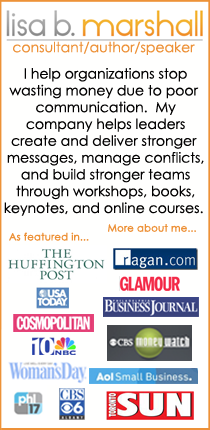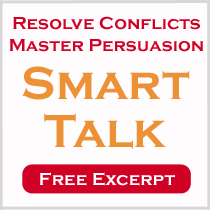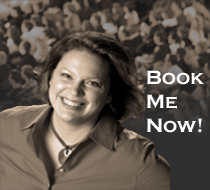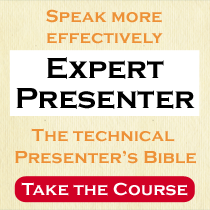Connect with transitions
“And now I am going to talk about …”
This is probably the most common “transition” that I hear, especially when a scientific speaker moves from one slide to the next. The problem with this is approach is that it really doesn’t transition at all.
Specifically, it fails to make a connection, which is the main purpose of the transition. Worse, it forces the audience to try to ferret out the connection which means they can’t give you their full attention. It also means they may make the wrong connection or just leave them with a fragmented, choppy view of your work.
Effective transitions explain the tie between the main points; think of them as links joining each slide to the next. This is particular important in a scientific talk because not only are the main ideas and concepts often complex, it is also often the first time your audience is hearing the information. Strong oral scientific transitions make make clear your scientific process of discovery. By specifically stating the connections you are making the overall presentation clear and to easy to follow which importantly frees your audience to focus on your results.
A classic and very effective form of transition for scientific presentations is the rhetorical question. You simple ask the question you were asking yourself when you were approaching this aspect of your research. For example, you might say “So once we understood the effect of patient behaviors, we began to wonder… are there any differences among different demographics?” Notice the first portion of the question acts as a brief summary of the previous section, while the actual question makes the link and leads you into the next section. Again, questions are the foundation of scientific discovery, so this form of transition serves the scientific speaker quite well.
In addition to rhetorical questions, are there other forms of transitions? (Notice the rhetorical question?
Here’s your homework. At the next presentation you attend, listen for rhetorical questions and see how they help you follow the flow of the talk. Then try it out yourself and don’t forget to let us know how it went.
Do you want to learn more? Sign up for the next small group presentation skills workshop, consider one-on-one coaching, or ask your organization to sponsor a large group seminar. After all, you didn’t learn to ride a bike by reading a book–you needed an expert coach (your Dad) to show you how to do it and then you needed lots of encouragement and practice, right? That’s what I can offer.











Share Your Thoughts!